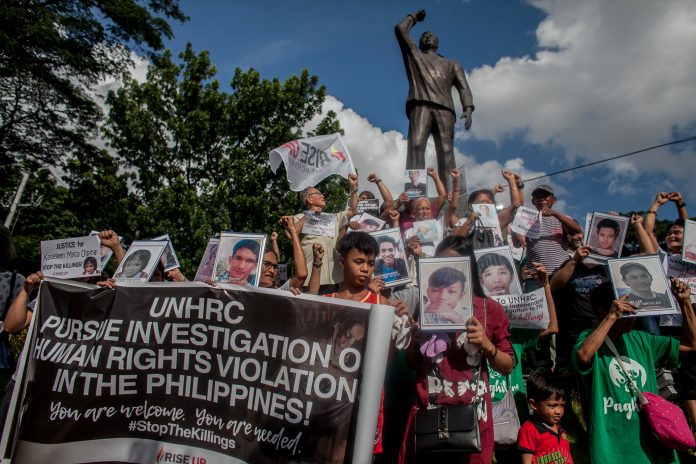The New York-based Human Rights Watch this week called on the prosecutor of the International Criminal Court to continue its investigation into alleged crimes against humanity related to the “drug war” killings in the Philippines under the administration of President Rodrigo Duterte.
On November 10, the Philippine government requested a deferral of the ICC’s investigation under the principle of complementarity, claiming that it had begun its own investigations into cases of extrajudicial killings attributed to the police during “drug war” operations.
“The Philippine government’s request for the International Criminal Court prosecutor to defer its investigation while the authorities conduct their own is a transparent delaying tactic to protect officials responsible for mass killings,” said Brad Adams, Asia director at Human Rights Watch.
“The ICC prosecutor should seek to resume its official investigation so that justice for victims isn’t further delayed,” he added in a statement released on December 14.
The human rights group said the Philippine government has not responded to a November 10 letter from Human Rights Watch seeking details about the government’s claim that it was investigating police involvement in the killings.
Philippine rights groups have also claimed that they found the number of pending investigations grossly inadequate to address the scale of the killings, and the government has yet to bring a single indictment.
In September, ICC judges authorized opening an investigation into crimes committed in the Philippines related to the “drug war” killings from November 2011 to June 2016, when large numbers of extrajudicial killings occurred in Davao City while Duterte was mayor, and up to March 19, 2019, the date that the Philippines’ withdrawal from the ICC’s Rome Statute took effect.
Of the thousands of deaths in the “war on drugs,” the Philippines’ Department of Justice said it had reviewed only 52 cases for possible criminal liability and would consider filing criminal charges against the police officers involved after further investigation and “case build-up” by the National Bureau of Investigation.
On November 18, the ICC prosecutor, Karim Khan, notified the court of the Philippines’s deferral request. Under the Rome Statute, should the prosecutor challenge the deferral, then the court will rule on the matter.
Under the complementarity proviso of the Rome Statute, the tribunal can only investigate allegations if a country does not conduct genuine proceedings relevant to crimes that could otherwise be prosecuted before the court.
On November 23, the Office of the Prosecutor asked the Duterte administration for information substantiating its investigations.
The government has yet to publicly respond to the request and has reiterated its argument that the ICC does not have jurisdiction over the Philippines.
The court, however, retains jurisdiction with respect to the alleged crimes and the state’s withdrawal cannot be applied to deny the court’s jurisdiction retroactively, said Human Rights Watch.
In its November 10 letter to Justice Secretary Menardo Guevarra, Human Rights Watch sought more information about the government’s investigation, including the Philippine National Police units involved in killings and officers implicated.
Human Rights Watch also asked whether the police or the Justice department considered investigating the thousands of cases that were not covered by the police’s Internal Affairs Service’s investigation, whose preliminary findings were the basis for the Justice Department’s review.
The government has said that more than 6,200 people have been killed by the police in anti-drug operations since Duterte took office in 2016.
Estimates from domestic and international groups put the number between 8,000 and 30,000.
Yet in its letter to the ICC, the government said that it has investigated 52 cases. None of the 154 police officers in these cases have been criminally charged.









